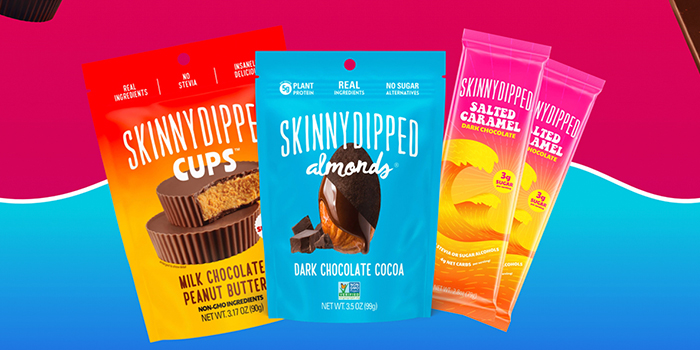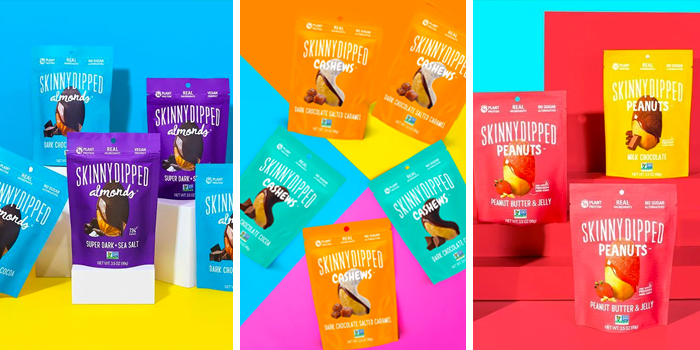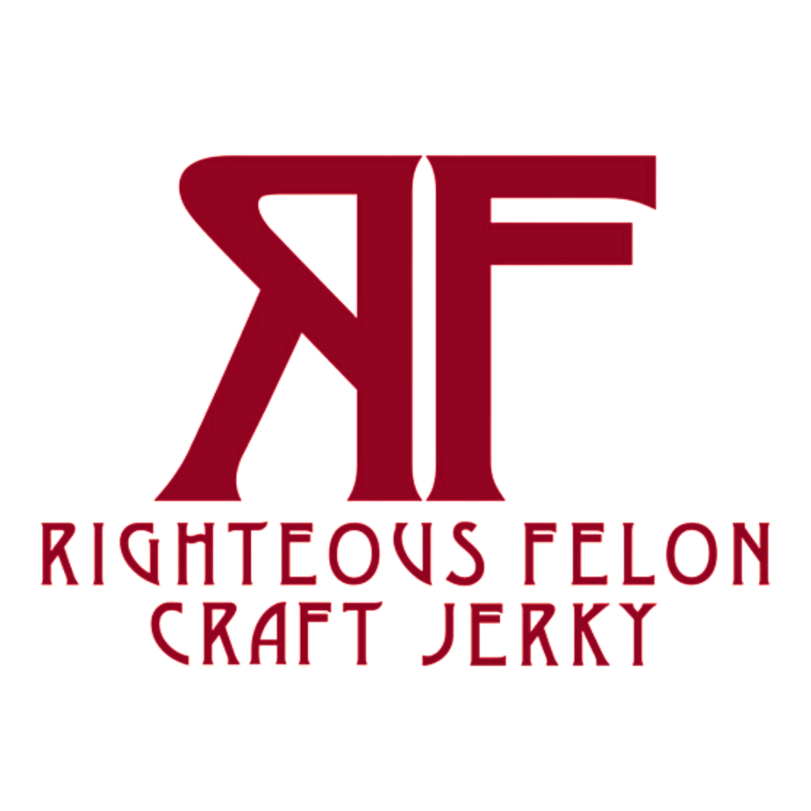SkinnyDipped Goes Deeper into Confection with Nut Butter Cups and Chocolate Bars

The confection aisle is a tough nut to crack but SkinnyDipped believes it has the perfect recipe with its emphasis on clean ingredient decks, indulgence and lower-sugar formulations. Last week, the company announced that it would add to its flagship line of coated nuts, launching a new line of nut butter cups and chocolate bars.
The new confection lines will launch with two bars (Dark Chocolate Almond Sea Salt and Dark Chocolate Salted Caramel) and multi-serve bags of Dark Chocolate or Milk Chocolate Peanut Butter Cups. SkinnyDipped’s bars will have an MSRP of $3.99 and a 6-pack of cups will retail for $5.99. The bars and cups will first launch on Amazon.com and the brand’s website, with more retail expansion timed for the fall category resets.
Though nut butter cups and chocolate bars are standard options in the confection space, SkinnyDipped’s founders, mother and daughter duo Val and Breezy Griffith, believe their products offer something unique. Most chocolate products in the space have either zero sugar or high sugar levels. However, SkinnyDipped will instead aim for a middle ground with each item having two to four grams of sugar per serving — 60% to 79% less sugar than their conventional counterparts.
Rather than using more traditional sweetener alternatives such as erythritol, monk fruit or stevia, SkinnyDipped instead turned to a new option: allulose (along with a small amount of cane sugar and maple sugar). Chocolate brands such as Good Sam also use allulose, although others, including Little Secrets, have said they find the ingredient too difficult to work with.
Val Griffith admitted that using alulose wasn’t easy, with the R&D for the lines taking more than a year, but the end result is a product that the brand hopes will appeal to a wide range of consumers.
According to the company’s research, roughly 79% of consumers would like to decrease their sugar intake. The Griffiths also cited recent data from research firm Euromonitor, which found that reduced and no-sugar chocolate are expected to grow up to 14.6% annually.
“Everyone is looking to reduce sugar, and everyone wants a low-sugar option, but not necessarily at the cost of the current sweeteners,” Breezy Griffith said. “We’re not a fad product. … We’re striving to create something that allows people to reduce the sugar in their diets but not give up anything in taste.”

Founded in 2013, with its first products hitting retail shelves in 2016, SkinnyDipped previously only sold coated almonds, cashews and peanuts in flavors such as Dark Chocolate Peanut Butter, Lemon, Peanut butter and Jelly, and Salted Caramel. Sold in 21,000 doors (up from 12,000 in 2020), the nuts are on the shelves of major retailers such as Target, Kroger, Safeway, Whole Foods, Wegmans, HEB, and BJ’s. The company is backed by investors including CAVU and singer Shakira, with SEC filings indicating it has raised more than $20 million. (SkinnyDipped declined to confirm the exact amount raised).
To maintain the throughline to their existing products, the Griffiths have tried to maintain a focus on nuts as a theme in their confection items. The cups, for example, have a higher nut butter to chocolate ratio, and the Dark Chocolate Sea Salt Almond Bar has two times the nuts found in other almond chocolate bars.
Using Allulose means the products cannot be sold in natural products retailer Whole Foods Market, which has not yet approved the ingredient, but the Griffiths don’t seem worried about missing out on that channel. Although they have a deep appreciation for the natural channel and see strong velocities in Whole Foods with their nuts, the Griffiths said their focus is on mass, club and conventional grocers as these stores offer the brand the greatest opportunity to have an impact on consumers’ diets.
“We have this impetus and this mandate to democratize the better-for-you eating experience so that it doesn’t have to be quite as elite,” Val Griffith said. “We try to take the qualities of artisan chocolate and make it affordable and bring it to the mainstream.”
Launching a mass confection product is tricky enough, with competition from huge global brands Hershey’s, Lindt and Reese’s, but launching during the COVID-19 pandemic proved even more challenging. As consumers shop more online or condense in-store shopping trips, purchasing impulse items like candy has been less top of mind.
The Griffiths say launching online first will allow the brand to leverage existing brand awareness. Then, by the time the cups and bars head to stores later this year, consumers will have already tasted the product and can serve as brand advocates. Focusing on driving trial has been the brand’s marketing strategy, Breezy Griffith said, and has proved to be cost effective.
“For us it’s often not about crazy expensive huge marketing, but instead how do we get our product into the mouths of consumers and how do we tell them a little bit about the brand?” she said. “We [know] that if we can get someone to pull our product off the shelf, they’ll be a repeat purchaser.”

















